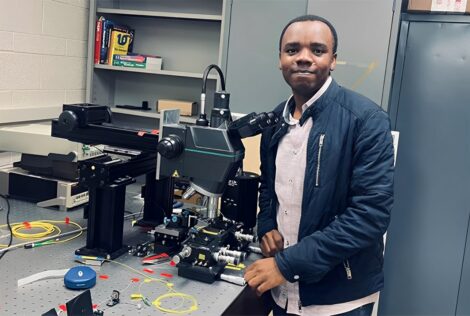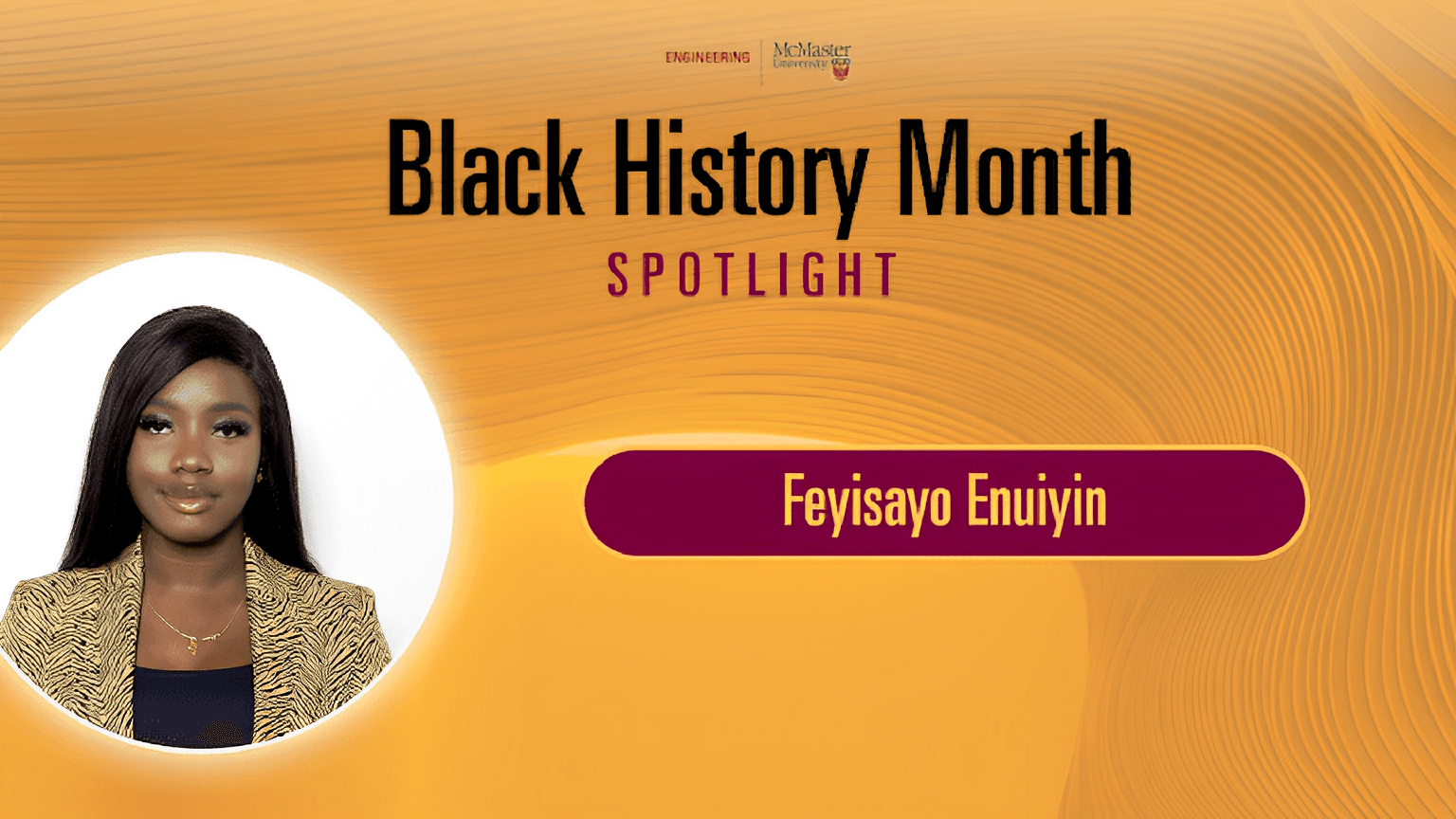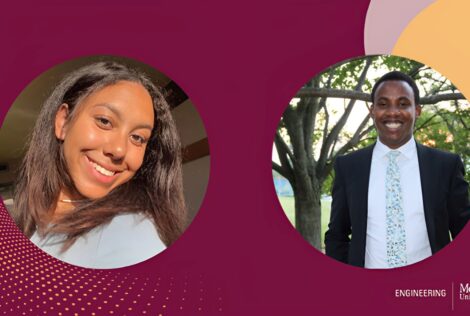

Recent Chemical Engineering Grad and previous President of National Society of Black Engineers (NSBE) McMaster Chapter, Feyisayo Enuiyin, describes the importance of empowering your community and navigating the challenges of being a Black woman in STEM.
Feyisayo Enuiyin is a McMaster graduate from the department of chemical engineering and is currently working in Associate Solutions Engineering at Geotab. Through McMaster Engineering’s Co-op programs, Feyisayo had the opportunity to work at a variety of placements and through that discovered her passion for technology.
In her role at Geotab–a telematics company that focuses on using software and hardware to enhance fleet management–Feyisayo works across the solutions engineering department to deliver technical solutions to clients.
Feyisayo is also a member of multiple non-profit and grass-roots organizations that focus on empowering, advancing and propelling the Black community into STEM. She uses her experiences from leading NSBEMac to drive changes within these organizations.
What does Black History Month mean to you?
Black History Month is a time for the accomplishments of Black individuals to get highlighted. As minorities, our accomplishments and big moments can often get overlooked and this can be very discouraging. However, during Black History Month, we get to showcase and bring forth the talent within our community.
Who do you look towards for advice?
My parents are big role models in my life. I go to them for everything: school, life, career, etc. I remember when I found the first year of school challenging, I would call my mom and my dad. Even though they didn’t study engineering, I felt like they could help and they did. I also look for advice from my community and network.
What is one of the biggest struggles that you face in your career?
As a Black woman in a male-dominated field, I often struggle with imposter syndrome. Especially considering that I followed a “non-traditional” career path—I graduated with a chemical engineering degree, but I am now working in the technology industry. There are a lot of times where I think, “I may not be the best person for this.” And those times, I have to remind myself that I’m here for a reason.
Do you have any networking advice for MacEng students?
1) Be yourself; you are going to attract what is for you.
2) Ask questions; you won’t have exams every semester but the learning doesn’t stop.
3) And finally, be enthusiastic about what you’re doing; it’s contagious!
What do you love most about working in the industry?
Working in the industry allows you to implement what you learn, but at the same time you get to challenge yourself, learn more and be a part of really cool projects. Right now, I am working in the technology industry – and this is someone who found first-year Python 1D04 challenging. It’s scary, but exciting to see myself do something that once terrified me and actually love it and want to learn more and do more. The learning and implementation in real time and in real life just never stops and that’s what I love most about it.
We’re living in such a digital age and I get to be at the sweet spot of innovation.
Seeing a product go from an idea to being built and then launched into the hands of the users and observing the impact it makes in their business is exciting to me.
What do you think about the new EDI initiatives such as the IBET scholarship and the NSBE scholarship? As President of NSBE during the 2020-2021 school year, you had a big role in pushing out some of these scholarships…what was this process like for you?
The new initiatives are something that was needed for a long time. Seeing these scholarships come to fruition is super exciting. This is the first step of many more steps that need to be made.
I’m really grateful that the voices of students are being heard. We’re starting to realize that there are certain barriers that stop certain communities from excelling. Strides have been made to remove these barriers.
One of the ways this has been done is through the introduction of the NSBEMac scholarship, which I had the opportunity to lead as NSBEMac President in 2020-2021. There were a lot of important and much-needed conversations with many stakeholders on that end. I’m thankful for the university staff involved in the creation of this initiative. My main priority was to make sure we take the project to the finish line and ensure the scholarship was set up properly for years to come.


